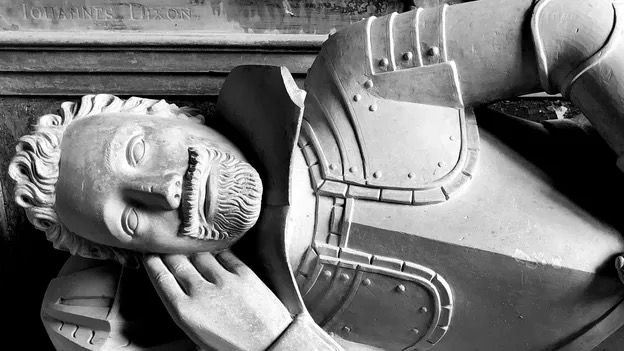80 Year Anniversary of D-Day
- Templar Webmaster

- Jun 6, 2024
- 2 min read
June 6th 1944 - June 6th 2024

Les sanglots longs
Des violons
De l’automne
Blessent mon coeur
D’une langueur
Monotone.
Tout suffocant
Et blême, quand
Sonne l’heure,
Je me souviens
Des jours anciens
Et je pleure;
Et je m’en vais
Au vent mauvais
Qui m’emporte
Deçà, delà,
Pareil à la
Feuille morte.
The above poem, Chanson d’Automne, written by Paul Verlaine in 1866 had a surprisingly important job in the days that preceded what would become known as D-Day.
In preparation for Operation Overlord, the BBC's Radio Londres signalled to the French Resistance with the opening lines of Verlaine’s poem "Chanson d'Automne" to indicate the start of D-Day operations under the command of the Special Operations Executive.
The first three lines of the poem, "Les sanglots longs / des violons / de l'automne" ("Long sobs of autumn violins"), would mean that Operation Overlord was to start within two weeks. These lines were broadcast on 1 June 1944.
The next set of lines, "Blessent mon coeur / d'une langueur / monotone" ("wound my heart with a monotonous languor"), meant that it would start within 48 hours and that the resistance should begin sabotage operations, especially on the French railroad system; these lines were broadcast on 5th June 1944 at 23:15.
Paratroopers then began landing around an hour later just after midnight, followed by a massive naval and aerial bombardment at 06:30.
According to the Commonwealth War Graves Commission approximately 4400 Allied troops died, with a further 5800 troops wounded or missing.
Of those killed that day around 1449 of them were British soldiers, with the youngest only 16-years-old.
One of the youngest to take part in the D-Day landings was Jack Banks who told the British Army he was 18, when in fact he was only 15.
Jack was in the first wave of soldiers to land on Gold Beach as part of Operation Overlord 80-years ago.

Jack Banks after enlisting in the British Army
The teenager from Darwen, Lancashire, survived the initial onslaught and by July his regiment, the Durham Light Infantry, had advanced around 20 miles into France.
After six weeks of fighting the heroic young man volunteered when his battalion was tasked with taking out an enemy machine gun post inside a farmhouse near Caen.
Jack and two friends were armed with grenades and sent in but were tragically struck and killed by enemy mortar fire in the line of duty. Jack was then just 16.
His grave, alongside his two comrades', can be seen today in the Commonwealth War Graves Commission's Jerusalem War Cemetery in Chouain.
The heartbreaking engraving on his headstone, chosen by his parents Fanny and Jack Sr., reads: 'God will tell us why, some day, he broke our hearts and took you away.'
Sadly Jack’s story is not an unusual one.
Today parents in Britain are sending their teenagers out the door to sit their GCSE, A-level, or other examinations. They will no doubt be nervous. However, if you are lucky enough to be such a parent - or indeed a nervous student about to put pen to paper - spare a thought for those brave boys who swapped their pens and paper for guns and bullets, and paid the ultimate price so we could have the freedom we have today.





Comments